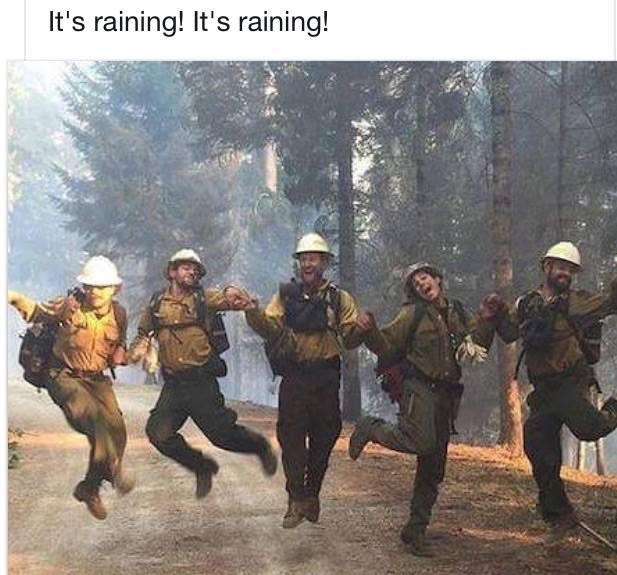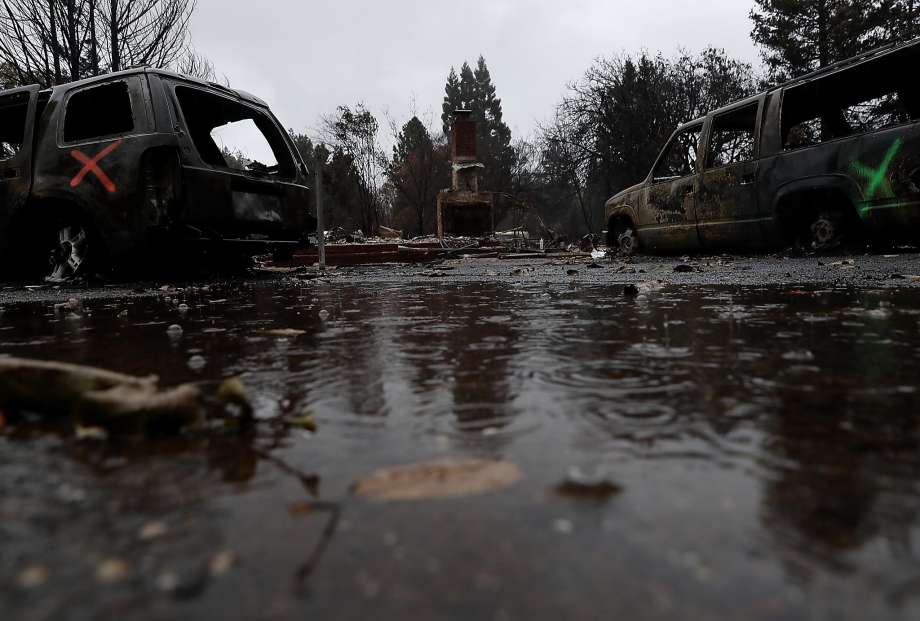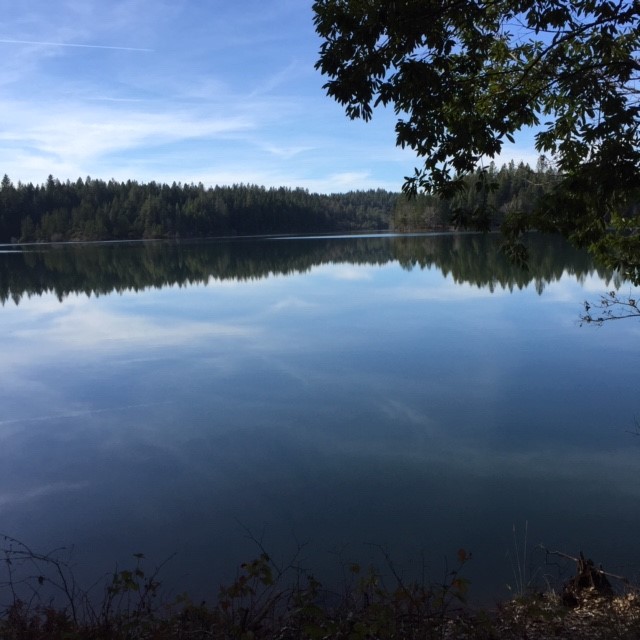The desperately needed rain in Butte County, the site of the most devastating and destructive wildfire in America’s history, paused this afternoon, ‘Black Friday.’ Though the wind hadn’t abated much. I seize the opportunity to get out on the bike. The scenes that unfolded before me were a study in contradiction.
The ginkgos are in yellow leaf, and, despite or because of the heavy gray skies and stiff wind, it was a joy to ride down neighborhood streets lined with the ancient trees. After 10 days of the worst air quality in the world, during which people were strongly advised to remain indoors, and wear approved masks when outdoors, it was incredibly good to smell the fresh, sweet air.
At the end of my street, I see a small, miserable-looking tent city in the field adjacent to Walmart. A quarter-mile away, the little shopping center with the Best Buy store is jammed with self-absorbed shoppers.
 The contrast is painful to see. But see and feel it one must, because in the space of 300 meters, the pathology of what an ecologist friend euphemistically calls ‘the American model’ is embodied.
The contrast is painful to see. But see and feel it one must, because in the space of 300 meters, the pathology of what an ecologist friend euphemistically calls ‘the American model’ is embodied.
The national news on Black Friday featured mostly well-mannered hordes of people, self-driven herds greedily enticed to the big outlets for ‘door busting’ bargains on flat-screen TV’s.
Who cares about the Earth and human suffering when I can have my third cheap flat-screen TV? I wonder, what will it to end consumerism when the Walmart parking area is encamped hundreds of people who have lost everything?
In the conclusion of “The Hero With a Thousand Faces,” Joseph Campbell wrote, “The work [of psychological revolution] cannot be wrought by turning back, or away, from what has been accomplished by the modern revolution; for the problem is nothing if not making it possible for men and women to come to full human maturity through the conditions of contemporary life.”
Once again we are confronted by scale. But the all too imaginable puny scale of the ‘Black Friday’ hordes can and must be overcome by the unimaginable scale of the fragile island Earth in the vastness of space.
The most intense meditations I’ve had since moving to this area nearly 25 years ago have been at Paradise Lake. It was the reservoir for the incinerated communities of Paradise and Magalia, a half hour drive from the house.
As the mountain community’s water supply, they didn’t allow dogs around the reservoir, swimming in it, or anything except small electric motors on it. Surrounded by forest, that meant the place was so quiet that it felt like an Arecibo for the cosmic mind. Attention having completely quieted the mind and opened the heart, you could feel the throbbing silence of infinite intelligence at Paradise Lake.
(The Arecibo Observatory in Puerto Rico, with a diameter of 300 meters, was the largest radio dish telescope in the world. It sustained serious damage during an event at the other end of climate change—Hurricane Maria.)
The Camp Fire, after stalling for a day near the small dam, enveloped Paradise Lake. I dread the drive to see it now, as one will have to pass through the hellscape that is now Paradise to see the cinders that surround the little lake. I imagine it now not as a place of immense outer silence inducing congruent inner stillness, but as a focal point for the suffering of man.
I feel we have two essential, existential purposes as human beings—to be vehicles for the immanence that imbues the universe to the extent of our brain’s capacity; and to contribute to the work of the transmutation of man.
Joseph Campbell was a man of myths, believing that to be human was to create meaningful symbols and narratives. In his conclusion he said, “Consciousness can no more invent, or even predict, an effective symbol than foretell or control tonight’s dream”
In that he missed the crucial point, since the challenge for human beings now is to see beyond the symbol. Indeed, to realize that seeing does not truly begin until the symbol-making mind falls completely quiet. That is what allows the psychological revolution essential to change the disastrous course of man to ignite within us.
Though I’m no fan of Nietzsche, he did say some true things, such as, “Live as though the day were here.” Yes, but don’t fool yourself that the revolution in consciousness has come, for the breakthrough has not occurred as of this Black Friday.
Martin LeFevre


